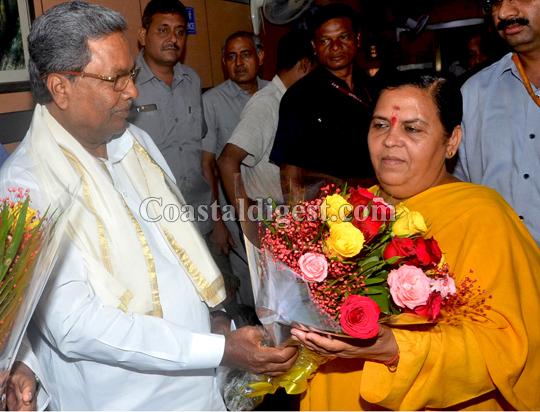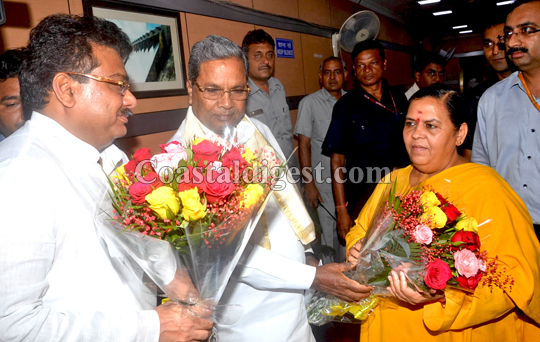New Delhi, Sep 23: Karnataka Chief Minister Siddaramaiah on Thursday met Union Water Resources Minister Uma Bharti and sought the Centre's intervention in the Cauvery river water row.

The chief minister, who was accompanied by ministers M B Patil, T B Jayachandra and D K Shivakumar, met the Union minister here and apprised her of the issue. At the meeting that lasted for more than half-an-hour, Siddaramaiah also expressed his inability to release any more water to Tamil Nadu as the available water in the Cauvery basin reservoirs in Karnataka was required for drinking in cities including Bengaluru and Mysuru.
Later, Siddaramaiah told reporters, “We have explained to the minister the current water situation in the Cauvery basin in Karnataka. We have also requested the minister to come to Karnataka's aid as the state is facing a severe water crisis due to failure of monsoon.
“As the Supreme Court has directed the Centre to set up the Cauvery Management Board in four weeks, we have also apprised the minister of the state's position on this issue.”
“Since Karnataka has already filed a petition in the apex court against setting up of the board, we have requested the minister to file an objection before the court on constituting the board,” he said, adding that the state has requested the Centre not to take any decision on this issue in haste. “She gave a patient hearing and promised to do the needful,” he said.
However, she refused to speak to the media. Separately, Siddaramaiah also met senior counsel Fali S Nariman and discussed the contents of the review petition to be filed.







Comments
She is not happy while receiving bouquet. in her mind, she might be abusing Siddhu.
Good to see, that she is covering her body, every hindus should cover the body. in sarees, many can see Belly's. it's worst then showing thighs
Add new comment